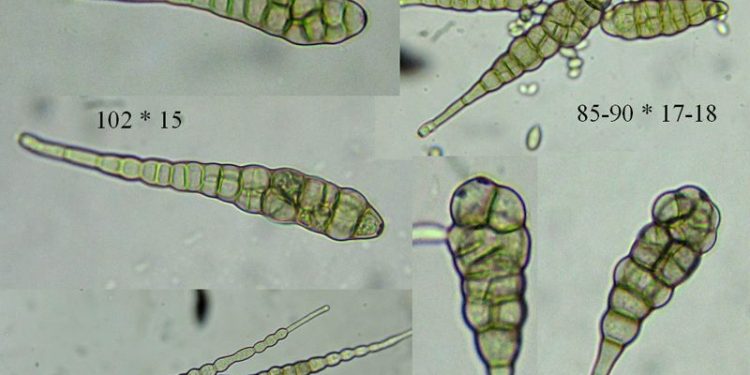Early blight caused by Alternaria solani is a widespread plant disease that affects a wide range of crops, including tomato and potato. This article aims to provide insight into the nature and development of this disease, as well as its consequences for farmers and the agricultural industry.
Early blight, caused by the fungus Alternaria solani, is a common plant disease that affects crops such as tomato and potato. According to recent data from the University of Minnesota Extension, early blight can cause yield losses of up to 50% if left untreated. This disease can spread rapidly and cause severe damage to crops, resulting in significant economic losses for farmers and the agricultural industry.
Alternaria solani thrives in warm, humid environments and infects plants through spores that can be transmitted through the air, water, and infected plant materials. Once it infects a plant, it can spread quickly, causing characteristic symptoms such as dark brown spots on leaves, stems, and fruit.
To prevent and manage early blight, farmers and agricultural scientists need to implement measures such as crop rotation, use of resistant cultivars, and timely application of fungicides. The use of fungicides is particularly critical as it provides immediate control of the disease, reducing crop damage and economic losses. However, the overuse of fungicides can lead to the development of resistant strains of the pathogen, making it essential to use fungicides in moderation and rotate them regularly.
In conclusion, early blight caused by Alternaria solani is a significant threat to global food security and agricultural sustainability. It is crucial that farmers, agronomists, agricultural engineers, farm owners, and scientists work together to prevent, manage, and mitigate the effects of this disease on crops and the agricultural industry.
#EarlyBlight #AlternariaSolani #Agriculture #PlantDisease #CropManagement #GlobalFoodSecurity #SustainableAgriculture #Fungicides #CropRotation #ResistantCultivars #Farmers #Agronomists #AgriculturalEngineers #FarmOwners #UniversityOfMinnesota #CropDamage #EconomicLosses #Pathogens #PlantHealth







